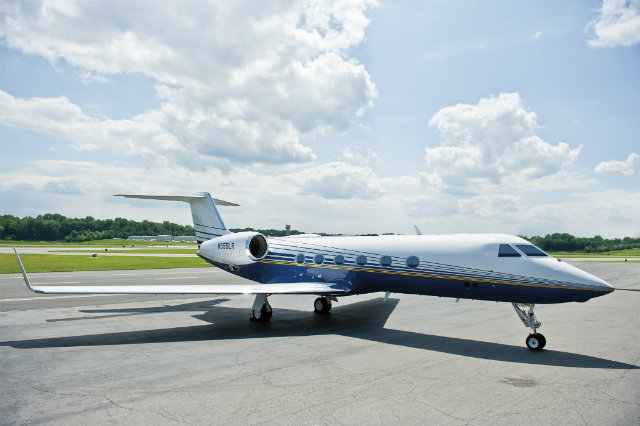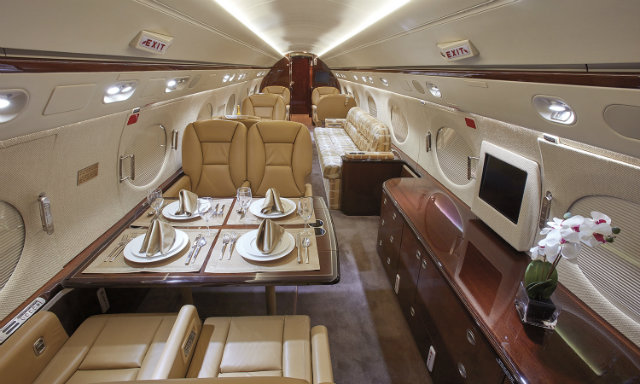US start-up operator Bliss Jet is preparing to launch a scheduled service on 8 January between New York and London using Gulfstream G450 and G550 business jets.
The service – which will connect New York LaGuardia with London Stansted airport – is targeted at business- and first-class airline passengers who are looking for a convenient and upmarket alternative to the transatlantic carriers.
Bliss Jet is the brainchild of David Rimmer, who launched the venture following decades of experience in transatlantic travel. “I have been flying between New York and London for 35 years in airline business and first class,” he says. “I have also worked in the business aircraft industry for many years, and now have the opportunity to offer travellers something far better than the airlines can deliver,” says Rimmer, who is also Bliss Jet’s president and chief executive.

Bliss Jet
He cites the “unbreakable airline delay chain” and the “cumbersome and timely departure and arrival process at commercial airports” as key drawbacks to airline travel. “Even with the fast-track process for premium passengers, so many pieces of the airline journey add time to it,” Rimmer says. “Airlines have to move lots of people, so they don’t lend themselves to extraordinary levels of service.”
Bliss Jet will offer 10-seat G450 and G550 large-cabin, long-range business jets – operated by US charter company White Cloud – between Sheltair Aviation’s fixed-base operation at LaGuardia to Inflight Jet Centre’s VIP terminal at Stansted.
“Not since the days of the Concorde has a door-to-door journey between New York and London been this fast or this refined,” claims Rimmer.

Bliss Jet
Flights will be sold on a per-seat basis, at a cost of $12,000 each way. Bliss Jet will launch with a single weekly return service, departing LaGuardia on Sunday evening and returning from Stansted the following Friday. However the frequency will increase as demand grows. “We will also add more aircraft, such as the Boeing BBJ, Airbus ACJ319 or Embraer Lineage 1000,” says Rimmer.
He dismisses suggestions that Bliss Jet will not be able to compete with established carriers in the lucrative transatlantic market. “There have been a number of unsuccessful ventures in the premium travel sector,” he says, referring to defunct operators including EOS, MaxJet and Silverjet. These companies provided an all-business-class service between New York and London with widebody airliners, until they folded between late 2007 and mid-2008 due to weak demand.
“They simply didn’t represent an exponential difference in premium travel,” says Rimmer. “Passengers experienced all of the inconveniences of airline travel – crowded terminals, long lines for security, customs and baggage claim – with none of the benefits of private travel. Bliss Jet is totally different.”
Source: Flight International


























